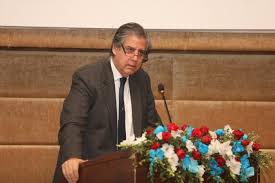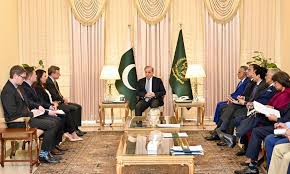Italy supports Pakistan tourism: Ambassador Stefano Pontecorvo

Islamabad: Italy’s ambassador to Pakistan Stefano Pontecorvo Thursday said that his country supported Pakistan’s efforts to promote tourism.
“Italy is always ready to support Pakistan, in this effort in favor of Pakistan’s mountain areas,” he said.
The envoy said Pakistan had a huge potential to promote tourism and the government was making efforts to facilitate the tourists.
Tourism in Pakistan is a growing industry. Lonely Planet termed Pakistan as being “…tourism’s ‘next big thing’ for more years than we care to remember.
The country is geographically and ethnically diverse, and has a number of historical and cultural heritage sites. The upsurge in tourism in the past few years has been aided by the Government of Pakistan’s recent decision to end mandatory No Objection Certificates for foreign tourists seeking to visit certain parts of the country.
In 2018, the British Backpacker Society ranked Pakistan as the world’s top adventure travel destination, describing the country as “one of the friendliest countries on earth, with mountain scenery that is beyond anyone’s wildest imagination.”[6] Forbes ranked Pakistan as one of the ‘coolest places’ to visit in 2019.
The World Economic Forum’s Travel & Tourism Competitiveness Report placed Pakistan in the top 25 per cent of global destinations for its World Heritage sites, which range from the mangroves in the Indus delta, to the Indus Valley Civilization sites including Mohenjo-daro and Harappa.
According to the Travel and Tourism Competitiveness Report 2017 released by the World Economic Forum, the direct contribution of travel and tourism to Pakistan’s GDP in 2015 was US$328.3 million, constituting 2.8% of the total GDP.
According to the World Travel and Tourism Council, the direct contribution of travel and tourism to Pakistan’s GDP in 2016 was US$7.6 billion (PKR 793.0 billion), constituting 2.7% of the total GDP By 2025, the government predicts tourism will contribute ₨1 trillion (US$7.1 billion) to the Pakistani economy.





